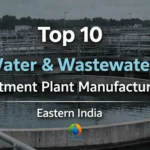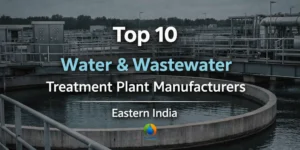Automated Water Quality Control: AI Alerts for Water Safety
2025-07-18 | by Joydip Manna

Water is an essential resource for all living organisms. Its quality is crucial for human health, ecosystem balance, and economic development. However, the growing pollution levels and increasing industrial activities pose significant challenges to maintaining water quality. Researchers and environmentalists have turned to innovative solutions. One of which is AI-powered water quality monitoring systems. The effluent treatment plant manufacturer must aware of these things. These advanced technologies leverage artificial intelligence (AI) algorithms. It helps to analyze data and provide real-time insights into water quality parameters. In this blog you will explore the impact of AI in the water sector.
AI’s Role in Enhancing Water Quality Monitoring
Artificial intelligence has revolutionized various industries, and water quality monitoring is no exception. AI algorithms enable intelligent data analysis and pattern recognition. It also helps with predictive modeling, facilitating informed decision-making. It empowers monitoring systems to process vast amounts of data in real-time. Integrating AI techniques enables the development of intelligent monitoring systems. It can automatically detect anomalies and generate alerts. AI can provide valuable insights into the status of water quality. AI algorithms may learn from prior data and adapt to shifting circumstances. The AI can help in the effluent treatment plant service provider. It can boost their accuracy over time by utilizing machine learning.
Benefits of AI in the Water Sector
There is a tremendous amount of technology ready to be adopted. Companies should act now to fully leverage their benefits. The water companies are beginning to embrace the digital revolution. The efforts must now be made to accelerate the adoption of new technology. Adapt recruitment strategies to ensure they are equipped with the right skills. Here are the ways in which AI can solve problems across the water sector.
- The innovative water network functions and technologies enterprise data sources. It is happened through data collection and communications. It also aids in data management and display, as well as data fusion and analysis. To reach the top level, organizations need to work on the foundations. The AI supports the effluent treatment plant manufacturer in the water sector.
- Some of the benefits of AI decision-making will only be unlocked as automation is increased. It will require several smaller steps. It enables water companies to place their faith in autonomous decision-making.
- Strengthen the roles of business leaders such as chief information officers. They can establish a clear line of sight from operational challenges to a comprehensive, data-driven business.
- Open the water company data securely.
- Attract the right skill sets into the sector. The next generation of water company employees must have the skills to work with data. Transitioning and upskilling the workforce will add further value.
The Conclusion
AI is a rapidly evolving field with the potential to transform industries and our daily lives. The advancements in AI technology continue to push the boundaries. By harnessing the power of AI, you can address the challenges faced by water and wastewater systems. It leads down the path of a more sustainable and resilient water sector. Visit Plizma Technology for AI powered products to treat waste water.
RECENT BLOG

Zero Liquid Discharge (ZLD) – Is It Becoming Mandatory?
2026-02-20

Top 10 Water And Wastewater Treatmant Plant Manufacturer in Eastern India
2026-02-12

What Is an Effluent Treatment Plant (ETP)? A Complete Guide
2026-02-10

What is MBBR Technology in an Sewage Treatment Plant
2026-01-28





